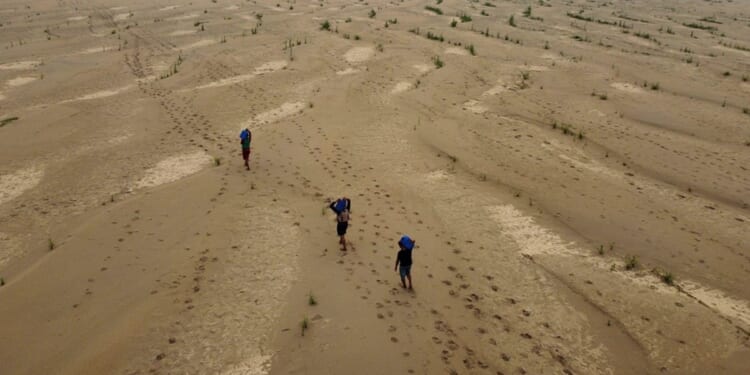UNDER the current emissions path, Brazil, which is hosting COP30, will face a 33.1 per cent GDP growth-hit from climate change by 2100, a new study suggests.
The report Brazil Burning: The economic impact of climate change on South America, was published by Christian Aid, in conjunction with researchers at the International Institute for Applied Systems Analysis, on Thursday.
The study examines the economic harm posed to 12 countries in South America from future global warming, with Brazil as the fourth most affected country in the continent.
The report suggests that the world is on a medium emissions path that would raise global temperatures by 2.9ºC by 2100, closely matching the United Nations Environment Programme’s (UNEP) estimate of around 2.8ºC. On this trajectory, Brazil would “suffer hits to GDP growth” of 10.4 per cent in 2050, 19.8 per cent in 2075, and 33.1 per cent in 2100.
Under a high-emissions scenario, resulting in a temperature rise of 3.5ºC, GDP growth in Brazil would reduce by 12 per cent in 2050, 25.3 per cent in 2075, and 36.6 per cent in 2100.
Even under a low-emissions pathway, limiting global heating to 1.6ºC by 2100, which is close to the Paris Agreement goal of 1.5ºC, the GDP growth reduction would be 8.3 per cent in 2050, 10.3 per cent in 2075, and 17.7 per cent in 2100.
Suriname, a small country in South America, faces the largest projected reduction in GDP growth across all scenarios — by up to 40 per cent to 43.4 per cent by 2100 — despite having only 0.1 per cent of the continent’s population.
Christian Aid’s global advocacy lead, Mariana Paoli, who is from Brazil, said that: “Climate change is not just an environmental crisis, it’s an economic crisis, too. The economic toll of climate change across Brazil and South America is a painful reality the region needs to wake up to. From the Amazon basin to the Andean highlands, rising temperatures are going to have a severe impact on GDP growth in the coming years.”
She said that the COP30 climate summit, which begins on Monday of next week, can be a “pivotal moment to counter this. . . We need to see countries investing in the needs of developing countries. This means funding resilient infrastructure, protecting ecosystems and livelihoods, and transitioning to clean energy systems that serve all.
“Brazil likes to talk a good game when it comes to the environment, but it needs to deliver a strong outcome at COP30 if it wants to be seen as a true climate leader.
“This report shows that the economic cost of inaction is staggering. But the opportunity to build a fairer, greener economy is within reach if countries wake up and take action.”
















